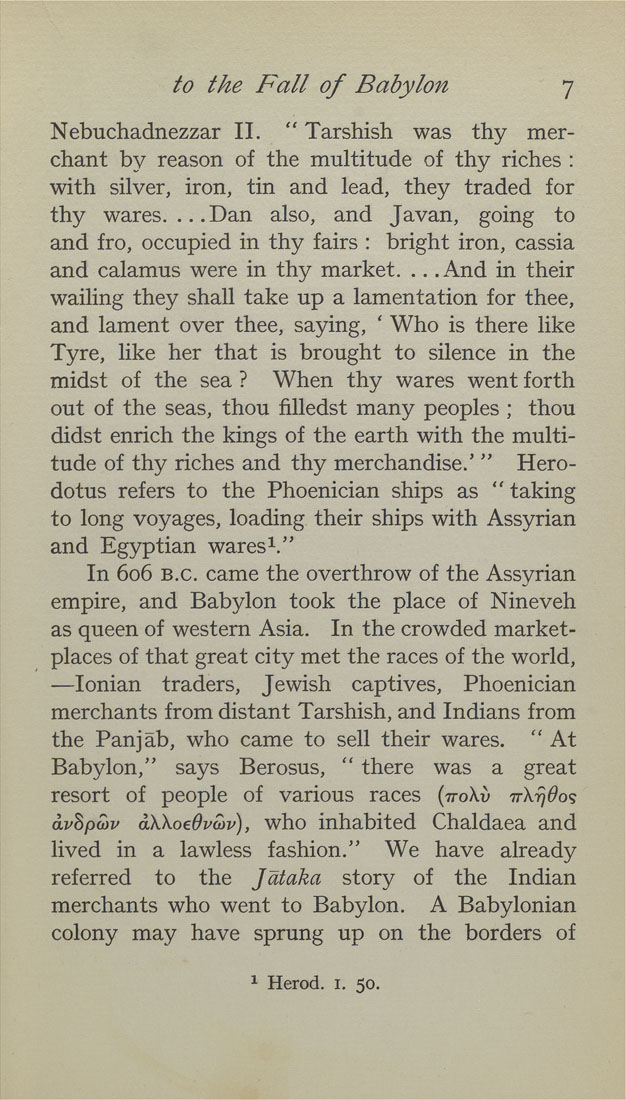to the Fall of Babylon 7
Nebuchadnezzar II. " Tarshish was thy mer¬
chant by reason of the multitude of thy riches :
with silver, iron, tin and lead, they traded for
thy wares. ... Dan also, and Javan, going to
and fro, occupied in thy fairs : bright iron, cassia
and calamus were in thy market. .. .And in their
wailing they shall take up a lamentation for thee,
and lament over thee, saying, ' Who is there like
Tyre, like her that is brought to silence in the
midst of the sea ? When thy wares went forth
out of the seas, thou filledst many peoples ; thou
didst enrich the kings of the earth with the multi¬
tude of thy riches and thy merchandise.' " Hero¬
dotus refers to the Phoenician ships as " taking
to long voyages, loading their ships with Assyrian
and Egyptian wares 1."
In 606 B.C. came the overthrow of the Assyrian
empire, and Babylon took the place of Nineveh
as queen of western Asia. In the crowded market¬
places of that great city met the races of the world,
—Ionian traders, Jewish captives, Phoenician
merchants from distant Tarshish, and Indians from
the Panjab, who came to sell their wares. " At
Babylon," says Berosus, " there was a great
resort of people of various races (ttoXv 7r\rj6o<;
avhpoiv aXKoeOvoiv), who inhabited Chaldaea and
lived in a lawless fashion." We have already
referred to the Jdtaka story of the Indian
merchants who went to Babylon. A Babylonian
colony may have sprung up on the borders of
^ Herod, i. 50.
|








